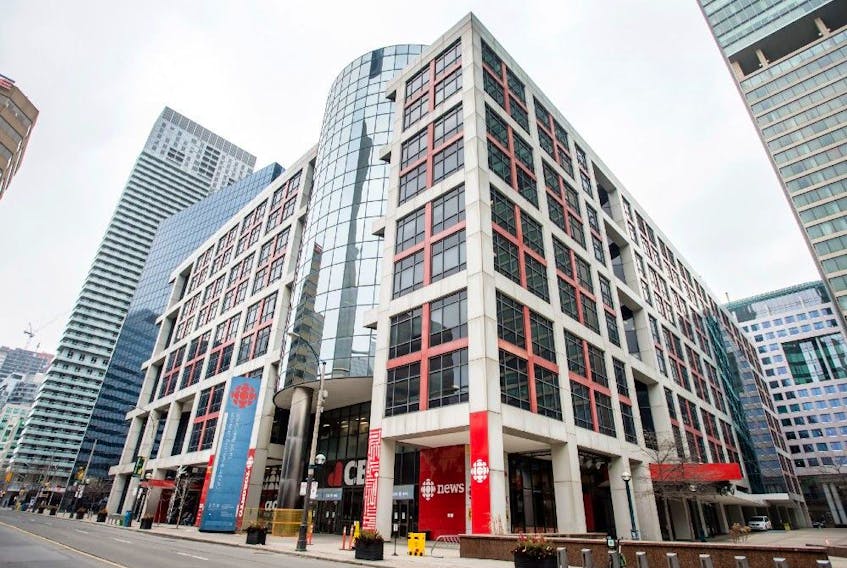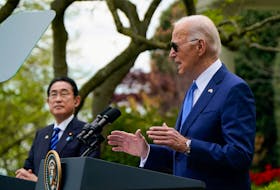OTTAWA — Online news legislation that will force Google and Meta to share revenues with news publishers should exclude CBC/Radio-Canada, witnesses told a Senate committee studying the bill Tuesday.
Peter Menzies, a former CRTC vice-chair and newspaper publisher who opposes the bill, asked senators to “at least” make sure CBC is ineligible to receive funds under the bill, and said companies whose primary business isn’t news shouldn’t be eligible either.
Out of the Parliamentary Budget Officer’s estimate that the bill will generate $320 million in funding, about “$240 million of that will go to broadcasters, with CBC, Bell Media and Rogers being the largest beneficiaries,” he said. About $80 million of that will be shared by the “entire non-broadcast world,” Menzies said.
“The end result is that those most in need get the least, those least in need get the most.”
Bill C-18 would force Google and Facebook parent company Meta to share revenues with news publishers by requiring the tech giants to reach commercial deals with news publishers. (Postmedia, publisher of the National Post, is in favour of the legislation).
University of Ottawa professor Michael Geist, who also opposes the bill, likewise argued including CBC in the bill is a “mistake.”
“Indeed, given concerns about public broadcasters competing with the private sector for ad dollars, to have it also compete for (Big Tech) money makes matters worse.”
Sarah Andrews, director of government and media relations at advocacy group Friends, said it would benefit taxpayers to include CBC under the bill. “In the current circumstances, it’s in the taxpayers’ best interest that CBC’s news content is valued and recognized within the framework of C- 18,” she said.
The public broadcaster received $1.24 billion in parliamentary appropriations last year and earned $651 million in revenue, largely from advertising.
Both Google and Meta have said Bill C-18 would effectively put a value on online links, and have threatened to respond by pulling news content from their platforms, such as Facebook, Instagram and Google Search.
Because of how Bill C-18 is designed — it covers Big Tech companies that “make news available” — doing so would exempt the companies from the legislation. The Senate transport and communications committee is set to hear from Meta and Google Wednesday evening.
Geist said the government should instead go for a fund model, an idea also suggested by Google at a House of Commons committee last month.
Geist and Menzies also said the bill might soon become obsolete because it doesn’t deal with emerging technologies.
We might have an entirely different technology behind search engines.
Geist pointed out it doesn’t cover tech like the artificial intelligence-based ChatGPT, while Menzies said “we might have an entirely different technology behind search engines and that sort of thing” in five years.
“If you just kept it simple and looked for a different way of compensating things, you might in the long term get much better outcomes,” he said.
In the second half of the meeting, senators heard from representatives from the CRTC, the telecom and broadcast regulator that will be in charge of administering the bill.
They told senators the CRTC is prepared for its responsibilities under C-18 and has the necessary capacity but it could still take at least a year or two for it to complete the necessary work because of the public consultation process it must follow.
Committee chair Sen. Leo Housakos took CRTC chair Vicky Eatrides to task for not showing up to the committee. He asked CRTC representatives to “take back the message to your chair that we have invited her … it’s been over a month that the invitation was sent out.”
“And we do feel at the end of the day that she’s the one who’s accountable for the CRTC. She’s the one who will be interpreting this piece of legislation with her colleagues and it’s incumbent on her to show Parliament a little bit more respect.”
Copyright Postmedia Network Inc., 2023









